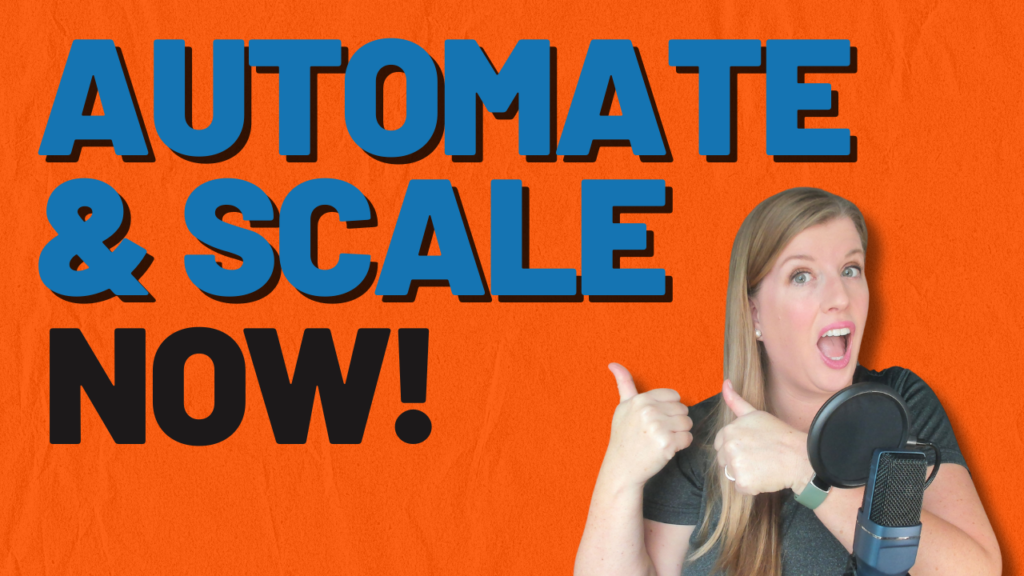
Are you spending too much time on repetitive tasks instead of growing your real estate business? The right automation tools can save you hours every week, allowing you to focus on high-impact activities that actually move the needle. In this post, I break down the top six automation tools that real estate investors can use to streamline their operations, prevent costly mistakes, and scale faster. I’ll walk you through how I personally use these tools, the benefits they bring, and the tasks you should never automate. Plus, I’ll share insights on how technology has allowed me to build a thriving portfolio while traveling the world with my family.
For a complete guide on optimizing and scaling your real estate investments, download my Freedom Blueprint! This essential tool walks you through ten key steps for organizing a profitable property portfolio. Click here to get your copy today!
Are you spending too much time on repetitive tasks? What if I told you the right tech tools could save you 10 or more hours per week without sacrificing quality? In this second installment of my six-part leverage series, I’m breaking down how real estate investors can use technology to 10x their growth.
And why does leverage matter? Why am I spending six episodes talking about it? Leverage is what separates investors who are stuck in the grind from those who are truly scaling and achieving financial freedom. Technology is one of the fastest ways to create that leverage. It’s also one of the key reasons I’m able to travel the world with my family while my portfolio in the United States continues to generate income.
Today, I’m sharing the key automation tools I use and others that may be a good fit for your investing business. I’ll walk you through the best tech for real estate investors, how it can save you time, and what you should never automate. Let’s dive into my top six automation tools.
Number one on the list is a project and task management tool. Staying organized is essential, especially if you have a team. Whether you’re juggling deals, rentals, virtual assistants, contractors, or agents, a centralized system ensures nothing slips through the cracks. Instead of keeping everything in your head or scattered across emails, a project management tool keeps all your tasks, due dates, and workflows in one place. Some great options are Monday.com, Asana, and Trello. If you’ve followed me for a while, you know how much I love Monday.com. If you’re considering it, check out my past review of it here: https://youtu.be/NsmgkiKtU3k.
The second important tech tool is bookkeeping and financial tracking. You need to know your numbers, and the reality is that many investors don’t. Maybe you’re not a numbers person, but tech can fill that gap without taking more of your time. Every investor needs a bookkeeping system because profitability starts with tracking income and expenses. A good system automates financial reporting, ensures accurate tax deductions, and prevents cash flow surprises—especially important for flippers and BRRRR investors. Some of the big players in this space are QuickBooks and Stessa. I use QuickBooks because it’s scalable, but it’s not cheap. If you’re just starting, check out Stessa or another lower-cost option, as long as you’re tracking your numbers.
Next, let’s talk about a Client Relationship Management system (CRM). A CRM is essential for investors handling leads, such as wholesalers, flippers, and BRRRR investors working with motivated sellers. It’s also useful for real estate agents and private lenders. A CRM automates lead tracking and follow-ups, ensuring no deal falls through the cracks. Imagine this scenario: You find a motivated seller, but six months pass, and you forget to follow up. By the time you remember, they’ve sold to someone else. A CRM could have automated that follow-up or reminded you to check in. Some solid CRMs include HubSpot, RE Simply, and InvestRefuse.
Tech can also help with marketing and social media scheduling. If you’re raising capital, building a brand, or sourcing deals via social media, automation ensures consistency without requiring daily effort. With scheduling tools, you can plan and automate months of posts in advance, staying top of mind without spending time every day. I personally use a tech tool for social media management, which empowers my virtual assistant to handle posting. I create the content, but I don’t have to edit or schedule it. My top recommendations are Metricool (which has a great free option) and Hootsuite.
Another game-changer is property management software. If you’re a self-managing landlord, automating rent collection, lease tracking, applications, and maintenance requests can simplify everything. This reduces manual tracking and speeds up tenant decision-making. One of my favorite features of Apartments.com, which I use, is automated late fees. If a tenant is late, the system automatically applies the penalty, removing any back-and-forth conversations. Other good options include Hemlane and Rent Ready.
Finally, let’s talk about automation and integrations that connect everything. This is for investors who want to eliminate manual, repetitive work. You can sync apps so tasks happen automatically, reducing the need for copying and pasting between tools. My favorite tool for this is Zapier. For example, when someone schedules a meeting with me via Calendly, Zapier automatically adds them to my CRM. This means I have all their details ready for follow-ups without any extra work on my part.
Now, how can these tools save you time? Let’s break it down. With a project management tool like Monday.com, deadlines are automated, and tasks are tracked in one place. Instead of manually checking in with your team, automatic reminders notify them about due dates. CRMs enable automated email follow-ups, ensuring leads don’t slip through the cracks. Social media scheduling tools allow my assistant to batch schedule an entire week of content in one sitting.
That said, not everything should be automated. Customer service and tenant relations require a personal touch. AI and chatbots are improving, but people still prefer a human response when dealing with major issues. High-stakes decision-making is another area that should not be automated. While AI tools can help analyze data, only you can interpret market trends and risk factors. Hiring and managing people also requires real relationships—automation can assist with reminders, but trust-building must come from real interactions.
Technology is only powerful when it’s set up correctly. If you want a step-by-step breakdown of how to implement these systems seamlessly, I cover it all inside my coaching program. I’d love to help you streamline your real estate business so you can scale faster without working harder. Book a free personalized coaching call at https://adriennegreen.com/coaching/, and let’s talk about how I can help optimize your operations.
Thank you for reading! Make sure to subscribe so you don’t miss the rest of my Leverage Series.
